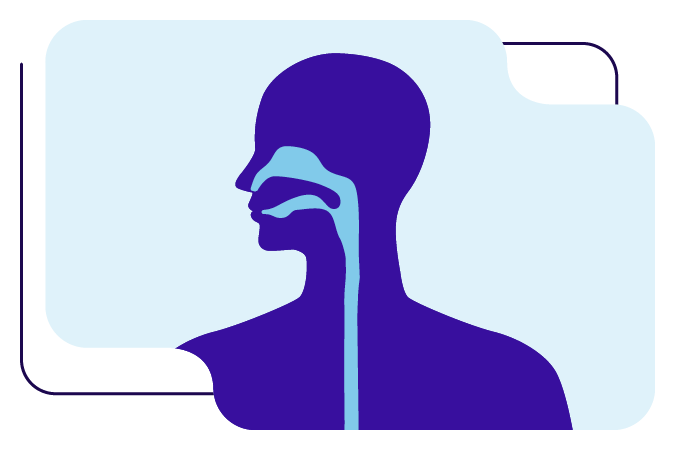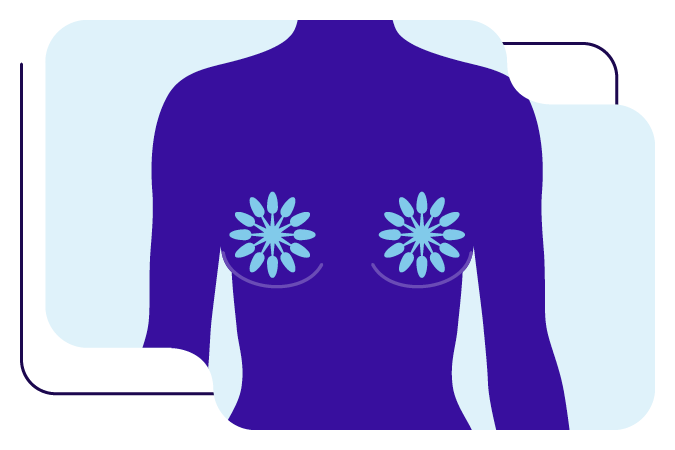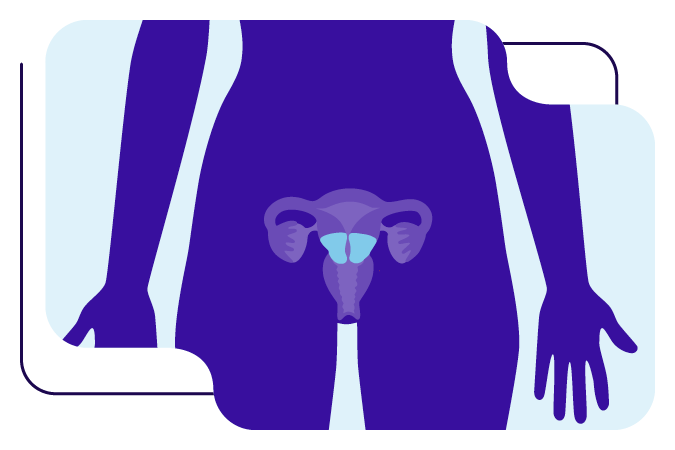Signs and symptoms of breast cancer
Early detection of breast cancer saves lives. Learn about the signs and symptoms
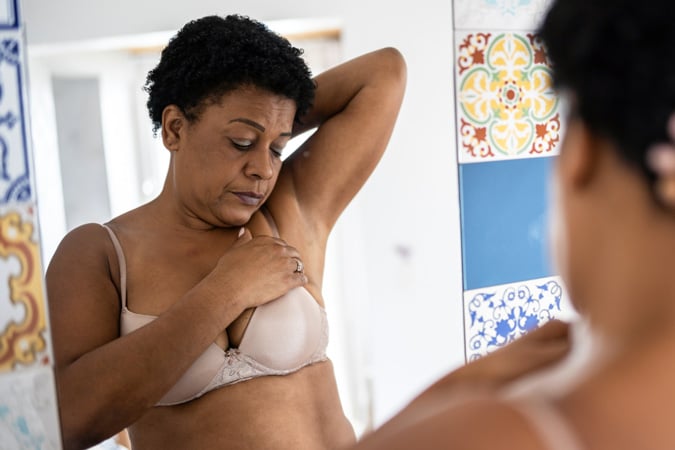
On this page
Breast cancer can show up in different ways. It’s important to see your GP if you notice any changes to your breasts or chest area that are new or don’t feel normal for you.
Knowing the signs and symptoms and attending breast screening are important to help spot breast cancer early. But understanding how to reduce your risk matters too.
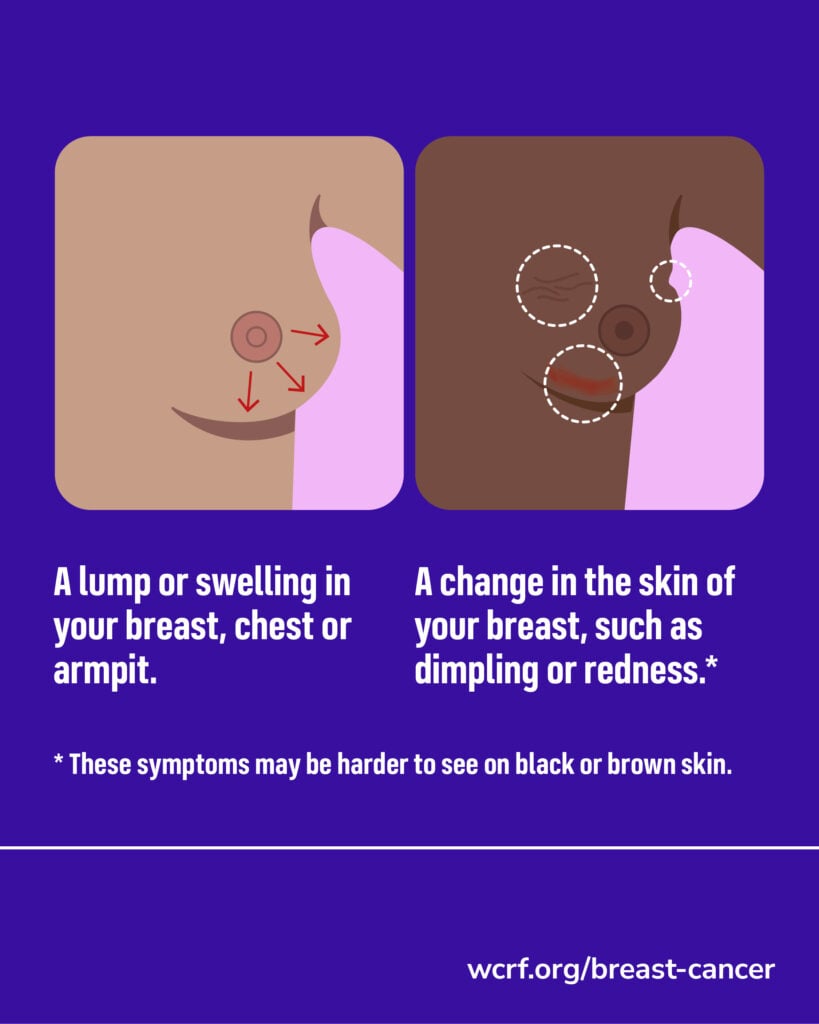
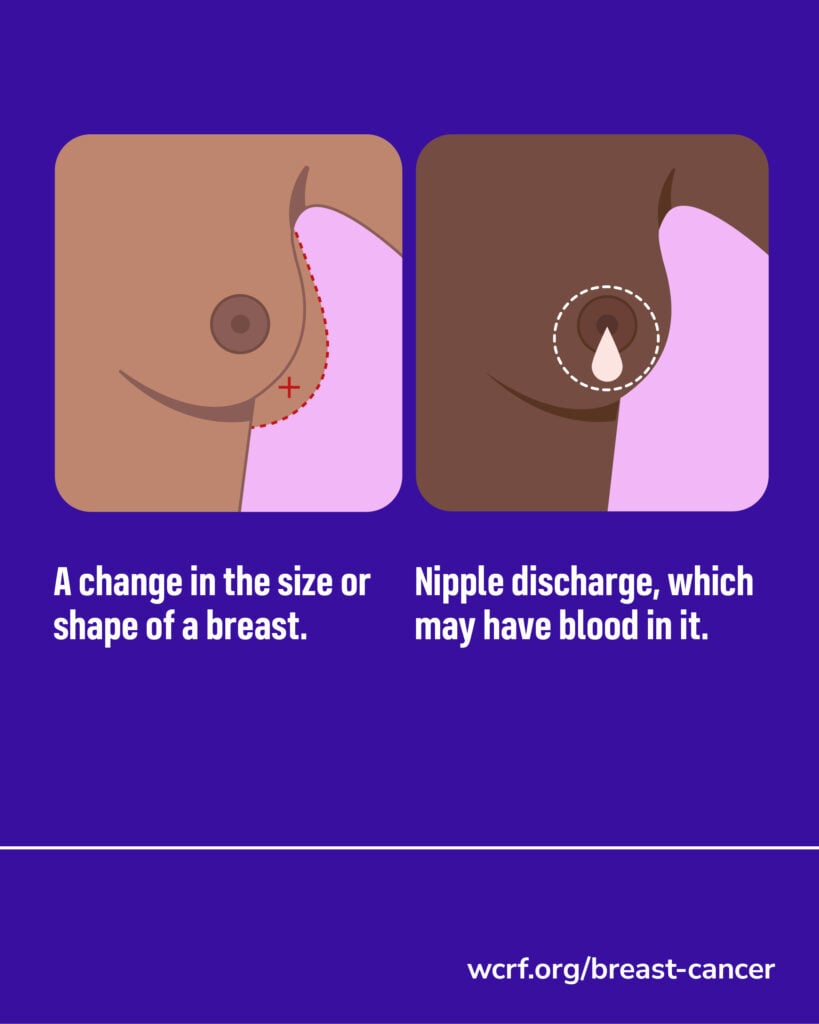
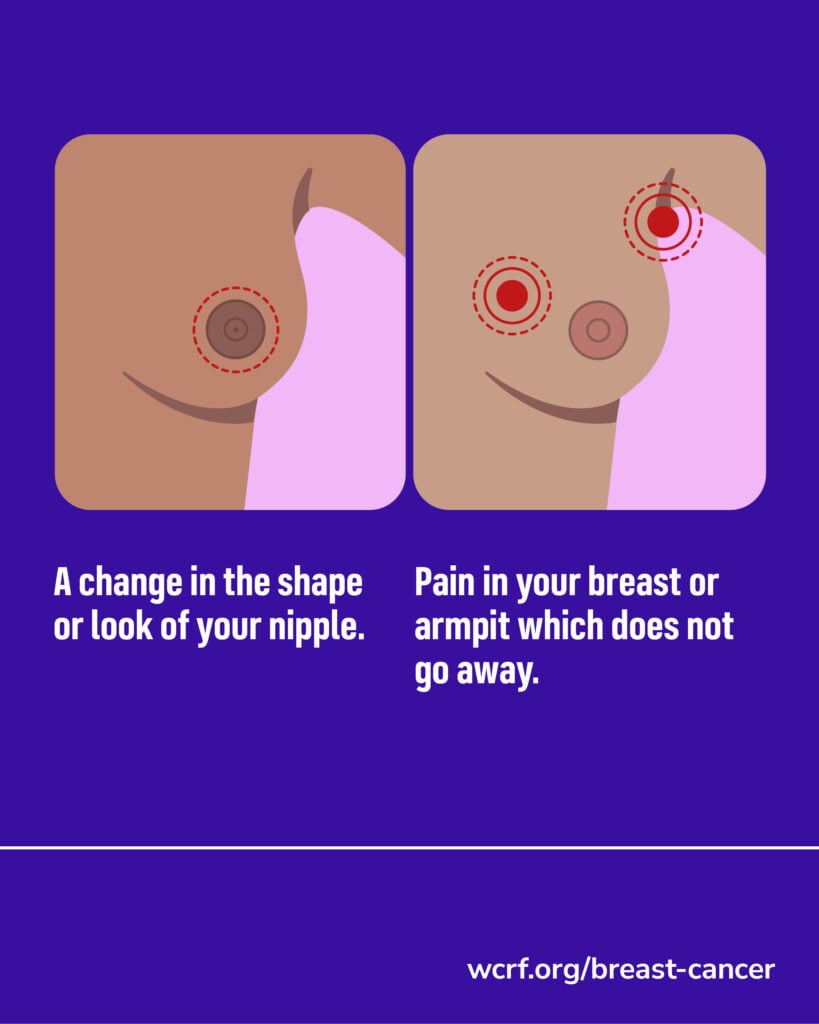
Signs and symptoms in women
Symptoms of breast cancer in women may include:
- a lump or swelling in your breast, chest or armpit
- a change in the skin of your breast, such as dimpling or redness (which may be harder to see on black or brown skin)
- a change in the size or shape of your breast
- nipple discharge (if you are not pregnant or breastfeeding) which may have blood in it
- a change in the shape or look of your nipple, such as it becoming pulled in (inverted) or developing a rash that may look like eczema
- pain in your breast or armpit which does not go away
Visit the NHS website for more information on signs of breast cancer in women.
Signs and symptoms in men
Breast cancer in men is much less common than in women. However, the symptoms of breast cancer in men may include:
- a lump or swelling in your chest area, including near the collarbone or under your arm – this lump is often painless
- a change in the size or shape of either side of your chest
- nipple discharge, which may have blood in it
- a change in the shape or look of your nipple, such as it becoming tender, pulled in (inverted) or developing a rash that may look like eczema
- sores (ulcers) on the chest or around the nipple
Visit the NHS website for more information on signs of breast cancer in men.
Breast cancer screening
In the UK, the NHS offers breast screening to help find cancer early when it can be easier to treat. Screening uses X-rays, called mammograms, to look for changes in your breast that may be too small to see or feel.
Who is invited for breast screening?
If you’re registered with a GP in the UK as female and aged between 50 and 71, you’ll be invited for breast screening every 3 years. You’ll receive a letter in the post inviting you.
Screening for trans and non-binary people
If you’re a trans man, trans woman or non-binary, you may be invited automatically, or you might need to contact your GP or local screening service to arrange an appointment.
Screening after age 71
If you’re aged 71 or over, you won’t be invited automatically, but you can still have screening every 3 years if you choose to. You’ll need to contact your local breast screening service to book an appointment.
Visit NHS breast screening for more information or speak to your GP.
Types and treatment of breast cancer
There are many different types of breast cancer. They can grow at different rates and can be diagnosed at different stages.
You can learn more about the most common types of breast cancer at Breast Cancer Now.
The most common treatment for breast cancer is surgery. Other treatments may include chemotherapy, radiotherapy, hormone therapy, targeted medicines or immunotherapy.
Visit the NHS website for more on how breast cancer is treated in women and men.

Sign up for regular updates
Get our email newsletter direct to your inbox and be first to hear about our research
-
References
- Breast cancer in men [Internet]. Breast Cancer Now. Available from: https://breastcancernow.org/about-breast-cancer/primary-breast-cancer/breast-cancer-in-men
- Signs and symptoms of breast cancer [Internet]. Breast Cancer Now. Available from: https://breastcancernow.org/about-breast-cancer/awareness/signs-and-symptoms-of-breast-cancer
- Symptoms of breast cancer in men [Internet]. NHS. Available from: https://www.nhs.uk/conditions/breast-cancer-in-men/symptoms-of-breast-cancer-in-men/
- Symptoms of breast cancer in women [Internet]. NHS. Available from: https://www.nhs.uk/conditions/breast-cancer-in-women/symptoms-of-breast-cancer-in-women/
- Treatment for breast cancer in men [Internet]. NHS. Available from: https://www.nhs.uk/conditions/breast-cancer-in-men/treatment-for-breast-cancer-in-men/
- When you’ll be invited for breast screening and who should go [Internet]. NHS. Available from: https://www.nhs.uk/conditions/breast-screening-mammogram/when-youll-be-invited-and-who-should-go/
